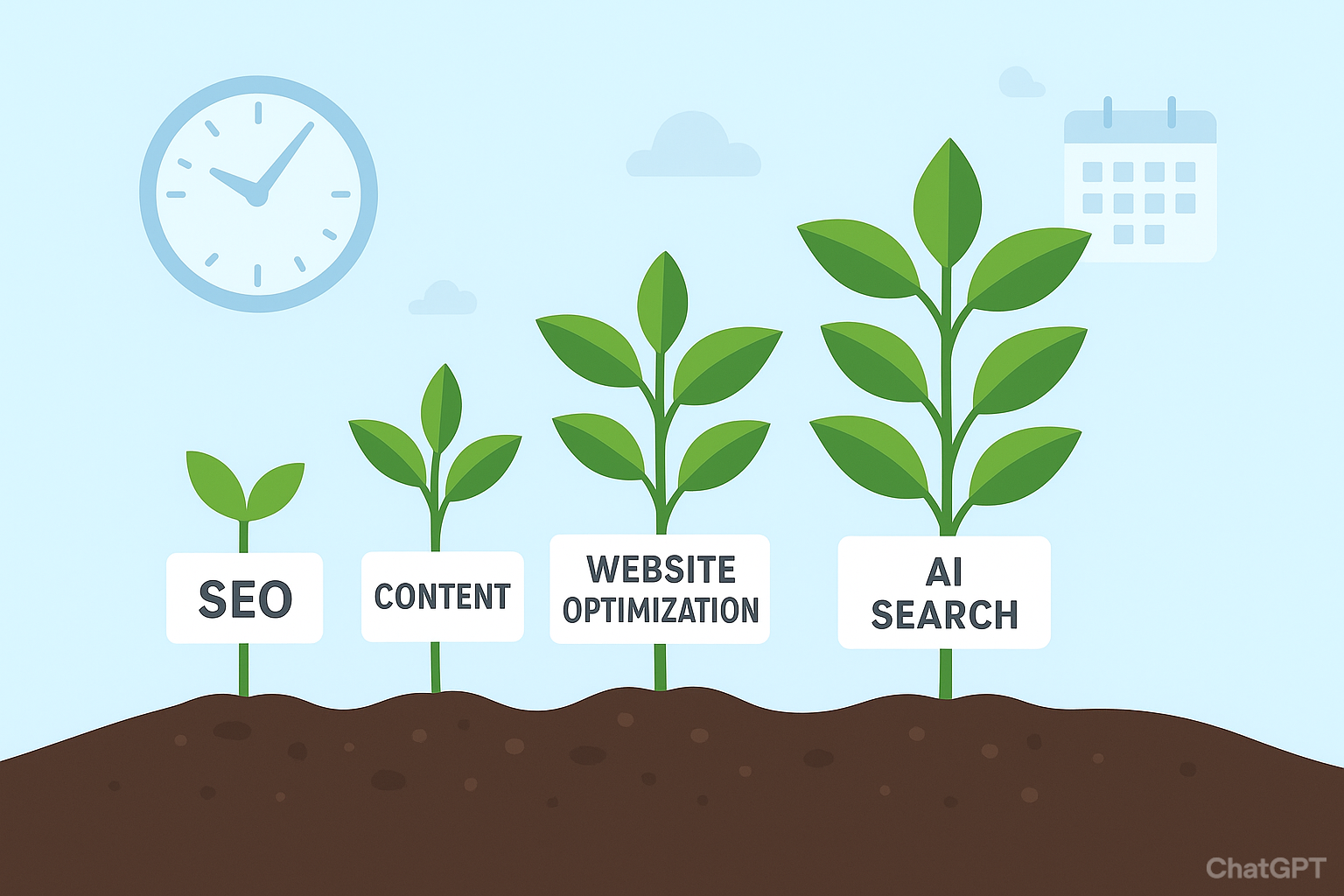


The Hidden Costs of Cheap Websites
A $500 website might look like a deal, but cheap web design comes with hidden costs—lost leads, weak SEO, security risks, and expensive rebuilds. Learn what you’re really paying for and why investing in a professional site saves money long-term.

Micro-Learning for Small Businesses: Annual Guide 2025
Micro-learning for small businesses is transforming how companies educate customers and train teams. In a world where attention spans are shrinking and competition for engagement is at an all-time high, the way we teach, train, and share knowledge has to evolve....
Top Three Things Your Site Needs Now
Your website isn’t just an online business card anymore. It’s the first impression most people get of your brand – and in today’s world, that impression has to be fast, clear, and easy to act on. If even one piece is missing, you’re losing potential customers...
How Long Does SEO Take to “Show Up”?
If you’re thinking about SEO (or AISO), you’re probably asking the same thing most business owners do: “How long until this actually works?” Fair question. Because unlike ads, SEO isn’t instant. It takes some patience – but once it kicks in, it pays off in ways...


